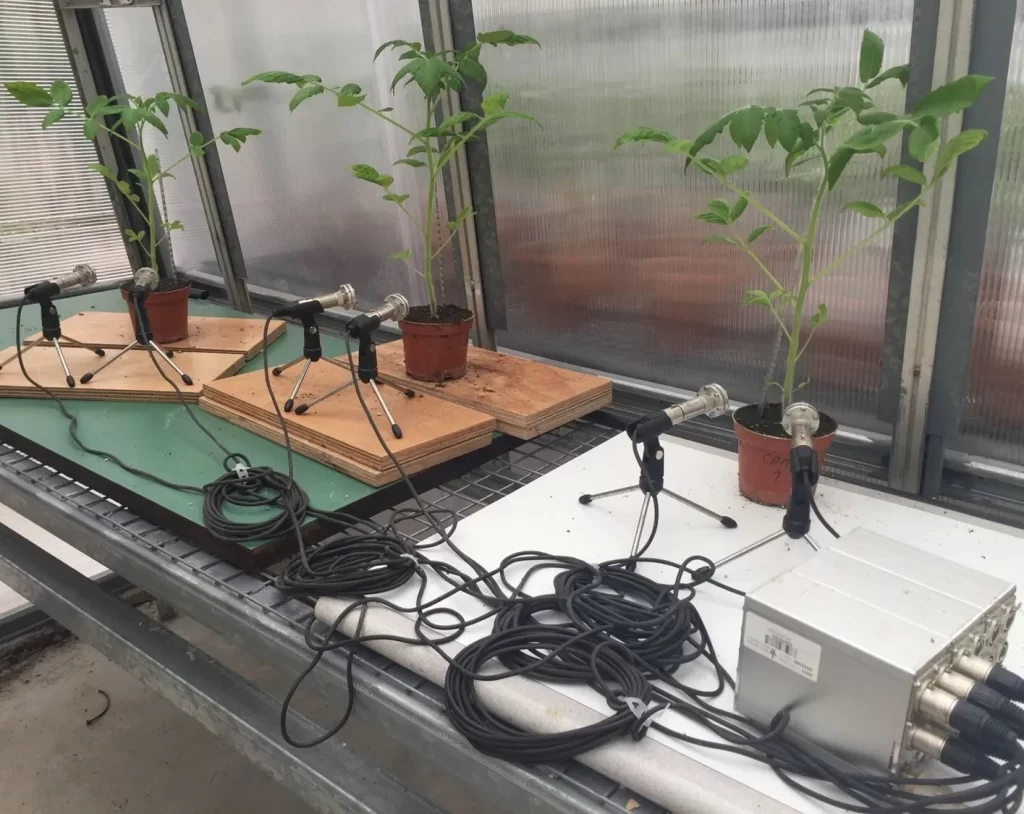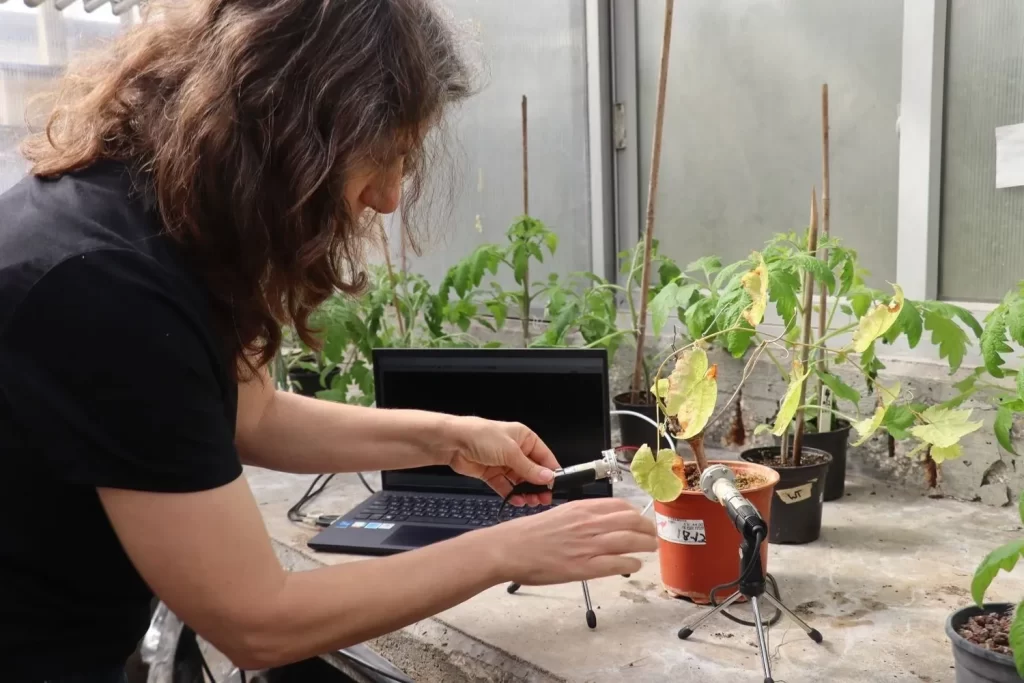Plants Under Stress Have Been Found to Emit Sounds to Their Environments

Researchers in Israel studied plants under stress, observing their behavior. According to the findings, plants under stress emit sounds that humans cannot hear.
What does a stressed plant sound like? It looks like a burst of bubble wrap. Researchers in Israel discovered that tomato and tobacco plants, stressed by thirst or having their stems cut off, make sounds similar to normal human speech. The frequency of these sounds is too high for humans to detect, but can probably be heard by insects, other mammals, and other plants.

Plants Make Sounds Under Stress
Although ultrasonic vibrations have been recorded from plants before, this is the first and only evidence that these sounds are propagated through the air. The researchers used sensitive microphones to record healthy and stressed tomato and tobacco plants, first in a soundproof acoustic chamber and then in a noisier greenhouse environment. They stressed the plants in two ways: by not watering them for a few days and by cutting their stems. To test the data, the sounds of unstressed and stressed plants were trained with machine learning algorithms.
The team found that stressed plants made more noise than unstressed plants. Plant sounds resemble explosions or clicks. It has been observed that a single stressed plant produces approximately 30-50 clicking sounds per hour at random intervals. Plants that are not under stress, on the other hand, attract attention by being very quiet.
Although the study focused on tomato and tobacco plants as they are easy to grow and standardize in the laboratory, the research team also recorded a variety of other plant species. “We’ve found that many plants — corn, wheat, grapes and cactus plants, for example — make noises when they’re stressed,” says Lilach Hadany at Tel Aviv University.

The Cause of the Sounds Is Unknown
The exact mechanism behind these sounds is unknown, but the researchers suggest that it may be due to the formation and bursting of air bubbles in the plant’s vascular system, a process called cavitation. It is also unclear whether plants produce these sounds to communicate with other organisms. “It’s possible that other organisms have evolved to hear and respond to these sounds. For example, a moth that wants to lay eggs on a plant or an animal that wants to eat a plant can use these sounds to guide their decisions,” Hadany said.
Sound recordings of plants can be used in agricultural irrigation systems to monitor crop hydration status and help distribute water more efficiently, the authors say. Yossi Yovel, a neuro-ecologist at Tel Aviv University, said: “We know there’s a lot of ultrasound out there – whenever you use a microphone, you’ll find that many things produce sounds that we humans can’t hear – but the fact that plants make these sounds means communication, eavesdropping, and exploiting those sounds. It opens up a whole new way of opportunity for us.”






